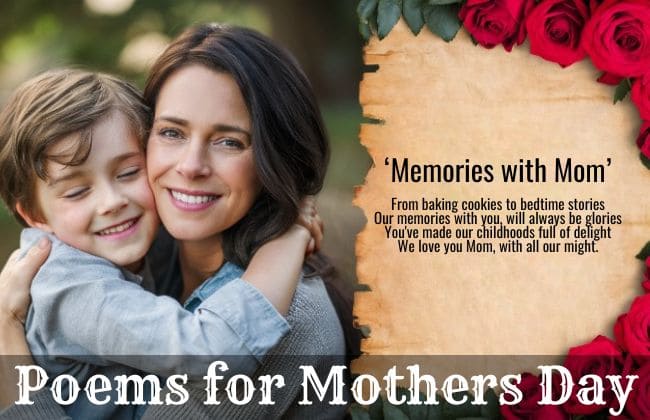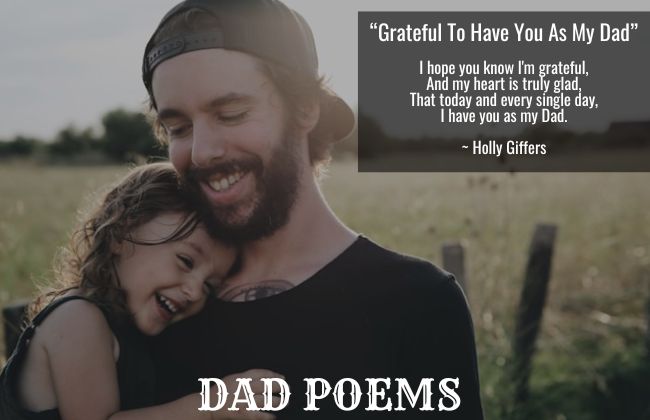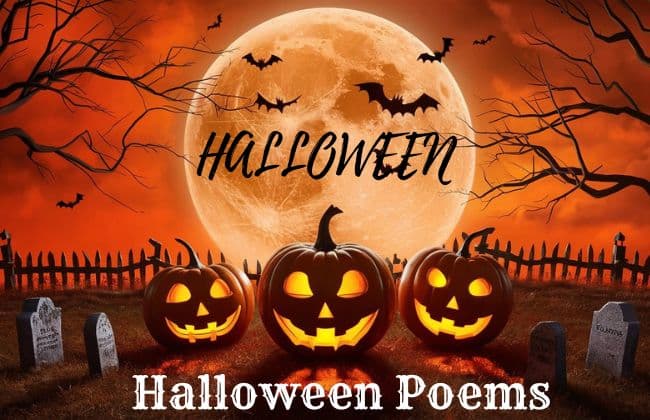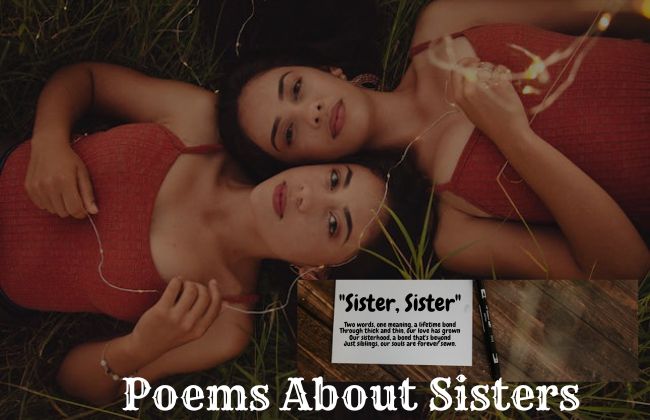Motherhood is a journey filled with profound emotions, challenges, and moments of pure joy.
From the very first heartbeat to the sleepless nights and endless hugs, the experience of being a mother is unlike any other. It is a bond that transcends words—a connection that poets have tried to capture for centuries.
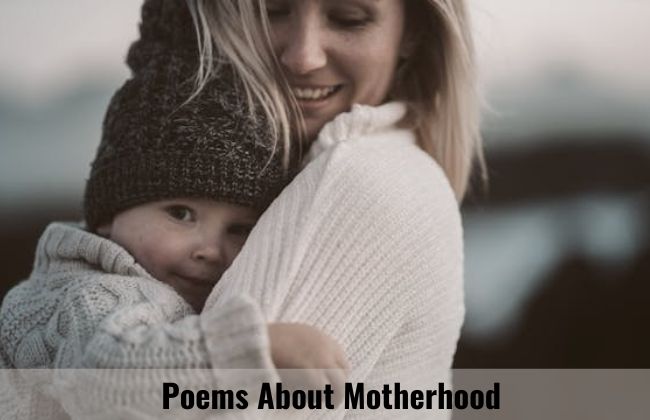
Poems about motherhood offer a unique window into this extraordinary relationship, revealing the strength, tenderness, and resilience that define mothers everywhere. Through carefully chosen words and vivid imagery, these poems celebrate the sacrifices and the immeasurable love that mothers give every day.
In this article, we will explore a selection of poignant poems that celebrate motherhood in all its forms.
We will delve into the works of renowned poets, examine themes of connection and sacrifice, and highlight how poetry serves as a powerful medium for expressing the unbreakable bond between mothers and their children.
Table of Contents
Classical and Iconic Poems About Motherhood
“Morning Song” by Sylvia Plath
This poem explores the complexities of motherhood, using imagery of birth, vulnerability, and separation.
She expresses the paradox of her own identity—neither fully a mother nor detached, as the newborn is both an extension of her and separate. It touches on themes of change, expectation, and the fragility of life.
Love set you going like a fat gold watch.
The midwife slapped your footsoles, and your bald cry
Took its place among the elements.
Our voices echo, magnifying your arrival. New statue.
In a drafty museum, your nakedness
Shadows our safety. We stand round blankly as walls.
I’m no more your mother
Than the cloud that distills a mirror to reflect its own slow
Effacement at the wind’s hand.
All night your moth-breath
Flickers among the flat pink roses. I wake to listen:
A far sea moves in my ear.
One cry, and I stumble from bed, cow-heavy and floral
In my Victorian nightgown.
Your mouth opens clean as a cat’s. The window square
Whitens and swallows its dull stars. And now you try
Your handful of notes;
The clear vowels rise like balloons.
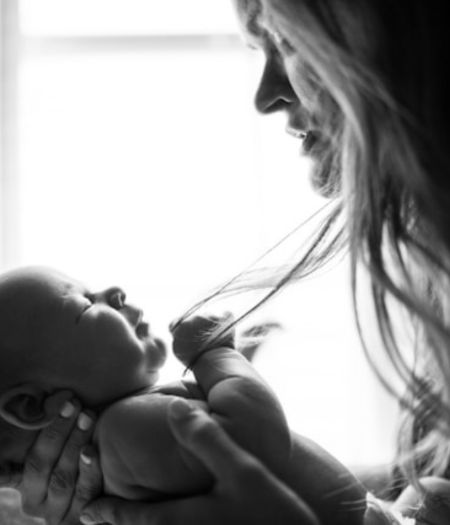
“To My Mother” by Edgar Allan Poe
This poem expresses profound gratitude and reverence for a maternal figure, likely his mother-in-law, who became a source of deep emotional support after the death of his wife, Virginia.
Poe contrasts her role with that of his biological mother, emphasizing her greater significance due to her connection to his beloved wife. It highlights themes of love, loss, and the transcendent bond of motherhood.
Because I feel that, in the Heavens above,
The angels, whispering to one another,
Can find, among their burning terms of love,
None so devotional as that of “Mother,”
Therefore by that dear name I long have called you—
You who are more than mother unto me,
And fill my heart of hearts, where Death installed you
In setting my Virginia's spirit free.
My mother—my own mother, who died early,
Was but the mother of myself; but you
Are mother to the one I loved so dearly,
And thus are dearer than the mother I knew
By that infinity with which my wife
Was dearer to my soul than its soul-life.
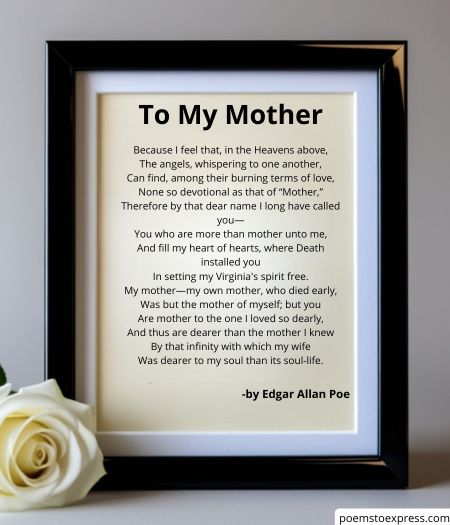
“The Birth” by Dorothea Lasky
The poem explores the raw, transformative experience of childbirth and motherhood, blending physical pain, surreal imagery, and emotional upheaval. It captures the intensity of giving birth, the disconnection from societal expectations of motherhood, and the profound bond with the newborn.
The birth isn’t about poetry
It is about screaming pain on a Sunday
Hailing a cab and head racing
To the hospital, now so close to the new apartment
I had a baby inside of me
But no one expected it to happen so fast
Or then at least they said they didn’t
Maybe they expected it to happen so fast
All along
Alone in the waiting room I shook and shook
And the blood ran down my legs
Later with the magnesium
I thought of the many permutations of the bald head
Pale, pickling fish skin, glowing with scales. See full poem

“Rock Me to Sleep” by Elizabeth Akers Allen
The poem expresses a deep longing for the comfort, love, and innocence of childhood, symbolized by the speaker’s mother. It reflects weariness with the struggles and disillusionments of adulthood, yearning for the maternal care that once provided solace and peace.
Through vivid imagery and emotional appeal, the speaker seeks to escape life’s burdens and return to a time of unconditional love and security, embodied in the act of being rocked to sleep.
Backward, turn backward, O Time, in your flight,
Make me a child again just for tonight!
Mother, come back from the echoless shore,
Take me again to your heart as of yore;
Kiss from my forehead the furrows of care,
Smooth the few silver threads out of my hair;
Over my slumbers your loving watch keep;—
Rock me to sleep, mother, – rock me to sleep!
Backward, flow backward, O tide of the years!
I am so weary of toil and of tears,—
Toil without recompense, tears all in vain,—
Take them, and give me my childhood again!
I have grown weary of dust and decay,—
Weary of flinging my soul-wealth away;
Weary of sowing for others to reap;—
Rock me to sleep, mother – rock me to sleep! See full poem

“The Mother” by Gwendolyn Brooks
The poem delves into the emotional complexity of abortion, expressing grief, guilt, and love for the unborn children. The speaker reflects on the lives that could have been, acknowledging the loss and the weight of the decision.
It captures the enduring emotional impact, blending sorrow with a deep, conflicted love, as the speaker grapples with the intangible presence of the children who were never fully realized.
Abortions will not let you forget.
You remember the children you got that you did not get,
The damp small pulps with a little or with no hair,
The singers and workers that never handled the air.
You will never neglect or beat
Them, or silence or buy with a sweet.
You will never wind up the sucking-thumb
Or scuttle off ghosts that come.
You will never leave them, controlling your luscious sigh,
Return for a snack of them, with gobbling mother-eye. See full poem
“Mothers” by Nikki Giovanni
The poem reflects the speaker’s evolving understanding of their mother, from childhood to adulthood. It conveys themes of maternal love, quiet strength, and generational connection. The mother’s solitude, her beauty, and the bond shared through a simple poem evoke deep emotional resonance.
The speaker passes the poem on to their own child, suggesting a cycle of wisdom and endurance passed through generations despite life’s difficulties.
the last time i was home
to see my mother we kissed
exchanged pleasantries
and unpleasantries pulled a warm
comforting silence around
us and read separate books
i remember the first time
i consciously saw her
we were living in a three room
apartment on burns avenue
mommy always sat in the dark
i don’t know how i knew that but she did
that night i stumbled into the kitchen
maybe because i’ve always been
a night person or perhaps because i had wet
the bed… Se full poem
Newborn Days Poems
In the early days of welcoming a newborn, the experience can feel both exhilarating and overwhelming. Poetry captures these fleeting moments, offering a unique lens through which to explore the joys, challenges, and transformative nature of new motherhood.
“Four Months Old” By Carrie Fountain
The poem captures the raw, instinctual experience of a four-month-old baby, emphasizing her limited awareness and primal sensations. It contrasts her simple, physical existence—fear, sleep, and surroundings—with the vast unknown world.
The imagery of animals and darkness reflects innocence and vulnerability, while the baby’s environment, like the printed sheets, highlights the tender, surreal nature of early life.
All the baby knows
is the flop of her limbs
and the milky blue vein
of sleep and the parking lot
of her animal fear,
the cars left there overnight,
windshields dark and thick
with dew. The rest is
completely unknown,
the complete darkness
of her white room,
where she sleeps
on a clean sheet
printed with baby
crocodiles and lions
wearing diapers.
“A Mother to Her Waking Infant” by Joanna Baillie
The poem expresses a mother’s deep affection for her infant, despite the child’s helplessness and lack of understanding. It contrasts the infant’s innocent joy with the mother’s hopes for a future where her child will grow to understand and care for her.
The poem reflects the unconditional love and tender devotion a mother feels, anticipating the day when the child will reciprocate that love as they both age.
Now in thy dazzling half-oped eye,
Thy curled nose and lip awry,
Uphoisted arms and noddling head,
And little chin with crystal spread,
Poor helpless thing! what do I see,
That I should sing of thee?
From thy poor tongue no accents come,
Which can but rub thy toothless gum:
Small understanding boasts thy face,
Thy shapeless limbs nor step nor grace:
A few short words thy feats may tell,
And yet I love thee well. See full poem
“First Fall” by Maggie Smith
The poem “First Fall” by Maggie Smith reflects a parent’s tender perspective as they introduce their child to the world. It captures the beauty and transience of autumn, symbolizing change and impermanence.
The speaker expresses a deep desire for their child to appreciate and love the world, despite its fleeting nature, as they navigate the bittersweet reality of life, death, and renewal together.
I’m your guide here. In the evening-dark
morning streets, I point and name.
Look, the sycamores, their mottled,
paint-by-number bark. Look, the leaves
rusting and crisping at the edges.
I walk through Schiller Park with you
on my chest. Stars smolder well
into daylight. Look, the pond, the ducks,
the dogs paddling after their prized sticks.
Fall is when the only things you know
because I’ve named them
begin to end. Soon I’ll have another
season to offer you: frost soft
on the window and a porthole
sighed there, ice sleeving the bare
gray branches. The first time you see
something die, you won’t know it might
come back. I’m desperate for you
to love the world because I brought you here.
Watching Them Grow Poems
As mothers watch their children grow, they often find themselves reflecting on the bittersweet passage of time. Poetry serves as a powerful medium to capture these fleeting moments, allowing mothers to articulate the complexities of love, hope, and nostalgia that accompany each stage of their child’s development.
“First Day of Kindergarten” by Margaret Hasse
This poem explores the bittersweet realization of a child discovering their parent’s independence. It captures the child’s initial belief in their parent’s unwavering presence, followed by the heartbreak of learning they have their own life beyond him.
The poem reflects themes of innocence, love, and the inevitable growth of understanding, as the child experiences his first feelings of disappointment and separation.
The bus steps are high, but William clambers up gamely.
Doors shut. He peers out a print-marked window.
From the street corner, I wave, wistful as a soldier’s bride
as his bus pulls away and turns a corner.
At noon the yellow bus returns him
to the same place where I’m standing again.
He thinks I stood there all day, waiting in his absence.
When he finds out I left to play tennis,
his forehead crumples like paper in a wastebasket.
Now he knows I can move on my own without him.
Tears drawn from the well of desertion form in his eyes.
I’m his first love and his greatest disappointment.
“I Leave Her Weeping” by Liz Rosenberg
This poem delves into the emotional conflict of a mother torn between her responsibilities and her child’s needs. It portrays the pain of leaving her daughter crying, symbolizing the inevitable moments of separation in parenting.
The imagery reflects the child’s vulnerability and the mother’s guilt, while also acknowledging the necessity of boundaries and the complexity of balancing love, duty, and personal struggles.
I leave her weeping in her barred little bed,
her warm hand clutching at my hand,
but she doesn’t want a kiss, or to hug the dog goodnight—
she keeps crying mommy, uhhh, mommy,
with her lovely crumpled face
like a golden piece of paper I am throwing away.
We have been playing for hours,
and now we need to stop, and she does not want
to. She is counting on me to lower the boom
that is her heavy body, and settle her down.
I rub her ribcage, I arrange the blankets around her hips.
Downstairs are lethal phonecalls I have to answer.
Friends
dying, I need to call.
My daughter may be weeping all my tears,
I only know
that even this young
and lying on her side,
her head uplifted like a cupped tulip,
sometimes she needs to cry.
“Dusk” by Tracy K. Smith
The poem reflects a mother’s bittersweet realization of her daughter’s growing independence and self-reliance. Through vivid imagery, it captures the daughter’s restless energy, her detachment, and the mother’s sense of loss as she observes the widening emotional distance.
The poem explores themes of change, aging, and the inevitable separation between parent and child, evoking both pride and melancholy in the face of life’s transitions.
What woke to war in me those years
When my daughter had first grown into
A solid self-centered self? I’d watch her
Sit at the table—well, not quite sit,
More like stand on one leg while
The other knee hovered just over the chair.
She wouldn't lower herself, as if
There might be a fire, or a great black
Blizzard of waves let loose in the kitchen,
And she'd need to make her escape. See full poem
Themes Commonly Found in Poems About Mothers
Poems about motherhood often revolve around recurring themes that resonate deeply with readers. These themes reflect the universal aspects of the maternal experience while also highlighting its individuality.
Here are some of the most prominent themes, illustrated with explanations and examples:
1. Unconditional Love and Sacrifice
One of the most enduring themes in motherhood poetry is the portrayal of a mother’s boundless love and the sacrifices she makes for her children. These poems often depict mothers as selfless figures who prioritize their children’s well-being above their own.
- Example: In Sylvia Plath’s “Morning Song,” the speaker describes the awe and responsibility of new motherhood: “Love set you going like a fat gold watch.” The poem captures the tender yet weighty bond between mother and child.
- Key Imagery: Poems in this theme often use metaphors like anchors, hearths, or trees to symbolize a mother’s grounding presence.
2. Identity and Transformation
Motherhood often brings a profound shift in a woman’s identity. Poems explore how becoming a mother reshapes self-perception, sometimes leading to a sense of loss or rediscovery of the self.
- Example: In Adrienne Rich’s “Of Woman Born,” the poet reflects on the tension between societal expectations of motherhood and personal identity, blending poetry with prose to unpack this transformation.
- Key Imagery: Mirrors, masks, or fragmented reflections often symbolize the evolving self.
3. The Passage of Time and Legacy
Many poems about motherhood reflect on the fleeting nature of childhood and the enduring legacy of a mother’s influence. These works often evoke nostalgia or contemplate the cyclical nature of life.
- Example: In Langston Hughes’ “Mother to Son,” the mother’s voice is a metaphor for resilience, passing down wisdom to her child: “Life for me ain’t been no crystal stair.”
- Key Imagery: Ladders, rivers, or seasons often represent the flow of time and generational connections.
4. Struggle and Resilience
Motherhood is not without its challenges, and many poems address the emotional and physical toll it takes. These works celebrate the strength required to navigate difficulties like exhaustion, societal pressure, or loss.
- Example: In Anne Sexton’s “The Double Image,” the poet grapples with mental health struggles and the fear of failing as a mother, offering a raw portrayal of resilience.
- Key Imagery: Storms, mountains, or burdens symbolize the obstacles mothers face.
5. Cultural and Societal Expectations
Poems often critique the idealized image of motherhood perpetuated by society, exploring how cultural norms shape the maternal experience. This theme is particularly prominent in feminist poetry.
- Example: In Lucille Clifton’s “homage to my hips,” the poet celebrates her body’s power, indirectly challenging societal standards that constrain mothers.
- Key Imagery: Cages, chains, or masks highlight the tension between expectation and reality.
Visualizing Common Themes
To better understand the prevalence of these themes, the following table summarizes their characteristics and notable poets associated with each:
| Theme | Core Idea | Notable Poets | Common Imagery |
| Unconditional Love | Selfless devotion and sacrifice | Sylvia Plath, Maya Angelou | Hearth, anchor, tree |
| Identity and Transformation | Shift in self-perception | Adrienne Rich, Sharon Olds | Mirror, mask, fragments |
| Passage of Time | Nostalgia and legacy | Langston Hughes, Robert Hayden | River, ladder, seasons |
| Struggle and Resilience | Overcoming challenges | Anne Sexton, Audre Lorde | Storm, mountain, burden |
| Cultural Expectations | Critique of societal norms | Lucille Clifton, Gwendolyn Brooks | Cage, chain, mask |
Poetry as a Tool for Exploring the Challenges of Motherhood
Poetry is uniquely suited to explore the challenges of motherhood because it allows for emotional depth, ambiguity, and layered meaning. Unlike prose, which may aim for clarity, poetry embraces the messiness of human experience, making it an ideal medium for capturing the complexities of maternal life.
Below, we examine how poetry serves as a tool for addressing these challenges, with specific examples and insights for readers new to the topic.
1. Giving Voice to Unspoken Emotions
How It Works: Motherhood can be isolating, especially when societal expectations demand perfection. Poetry provides a safe space to express feelings like guilt, fear, or inadequacy that mothers may hesitate to voice aloud.
Example: In “Postpartum” by Ingrid de Kok, the poet articulates the raw vulnerability of new motherhood: “The world is too big for this small body.” The poem’s sparse language mirrors the overwhelming yet quiet struggle.
Impact: By naming these emotions, poetry validates mothers’ experiences and fosters empathy in readers.
2. Challenging Stereotypes
How It Works: Poetry can subvert the myth of the “perfect mother” by presenting authentic, flawed portrayals of motherhood. This challenges readers to rethink societal narratives.
Example: In Sharon Olds’ “The Language of the Brag,” the poet compares childbirth to a heroic act, rejecting the passive stereotype of mothers: “I have done this thing, I and the other women.”
Impact: Such poems empower mothers to embrace their strength and individuality.
3. Creating a Sense of Community
How It Works: Poems about motherhood often resonate across generations and cultures, creating a shared space for readers to connect with others’ experiences.
Example: Maya Angelou’s “Still I Rise” speaks to the resilience of Black mothers, offering a universal message of hope that transcends specific contexts.
Impact: Readers, especially mothers, feel less alone in their struggles, finding solace in shared stories.
4. Processing Trauma and Loss
How It Works: For mothers who face miscarriage, infertility, or the loss of a child, poetry offers a way to process grief. Its rhythmic structure and imagery provide a cathartic outlet.
Example: In “The Mother” by Gwendolyn Brooks, the poet mourns unborn children, blending sorrow with love: “You were born, you had body, you died.”
Impact: These poems help mothers and readers confront pain while honoring their experiences.
You might also like:



